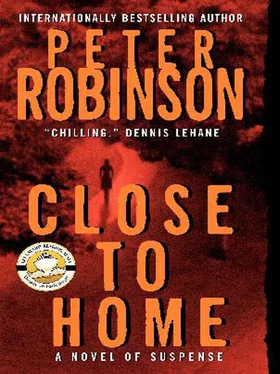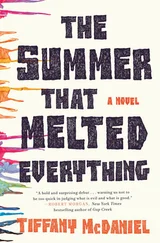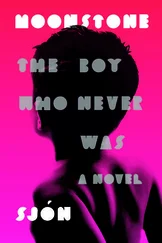“No.”
“Would you?”
“Of course.” Robin reached for her handbag on the sofa beside her and took out a small plastic container. “Here they are,” she said. “Look. Almost full. Why do you ask?”
Annie looked, then dunked her digestive biscuit in her coffee. Though she had to eat it carefully, avoiding the loose teeth, it tasted good, and it gave her a moment to phrase her response to avoid using images that might upset Robin. “It’s just that the pathologist found traces in Luke’s system,” she said – it sounded better than “stomach contents.” “We were wondering where he got it from.”
“Luke? Valium? Certainly not from us.”
“And I assume he didn’t have a prescription of his own?”
Martin and Robin looked at each other, frowning. “Of course not,” said Robin. “Someone else must have given him it.”
“Is that what killed him?” Martin Armitage asked.
“No,” said Annie. “It’s just another complication I’d like to get out of the way, that’s all.”
“I’m sorry we can’t help you,” said Robin.
Annie struggled to phrase her next question, too. Talking to these two was like walking on eggs, but it had to be done. “Mrs. Armitage – Robin – you know Luke was confused about his biological father, don’t you?”
“Neil? Well, yes, I suppose… But, I mean, Luke never knew him.”
“Surely you knew he must have wondered what happened, why his father didn’t want him?”
“It wasn’t like that. Neil just couldn’t cope. He was a child himself in so many ways.”
“And a drug addict.”
“Neil wasn’t an addict. He used drugs, but they were just a sort of tool for him, a means to an end.”
Annie didn’t bother arguing that that was what they were for most people; it would be easier if she took Neil Byrd’s exalted artistic status in her stride, especially when talking to Robin. “But you knew Luke couldn’t listen to his music, didn’t you?”
“I never asked him to. I don’t listen to it myself anymore.”
“Well, he couldn’t,” Annie said. “Any reference to Neil Byrd or his music upset him. Did he ever talk to either of you about any friends of his called Liz and Ryan?”
“Not to me, no,” said Robin. “Martin?”
Martin Armitage shook his head.
“He was in a band with them. Didn’t you know?”
“No,” said Robin. “He didn’t tell us.”
“Why would he keep it from you?”
Robin paused and looked at her husband, who shifted in his seat and spoke, “Probably because we’d already had arguments about that sort of thing.”
“What sort of thing?”
“I thought Luke was devoting far too much of his time to poetry and music, and that he ought to get more involved in team sports, get more exercise. He was starting to look pasty-faced from spending all his time indoors.”
“How did he react to this?”
Martin looked at Robin, then back at Annie. “Not well. We had a bit of an argument about it. He insisted he was the best judge of how to spend his time.”
“Why didn’t you tell me any of this earlier?”
“Because it didn’t seem relevant. It still doesn’t.” Martin sat forward and stared at her with that intense, disconcerting look of his. “Someone kidnapped Luke and murdered him, and all you can do is ask questions about Neil Byrd and my relationship with Luke.”
“I think I’m the best judge of what questions I should be asking, Mr. Armitage,” said Annie, aware of her heart pounding again. Surely they could all hear it. “Did you agree with your husband?” she asked Robin.
“Sort of. But I didn’t want to stand in the way of Luke’s creative development. If I’d known about the band, I would have been concerned. I wouldn’t have wanted him getting into that kind of life. Believe me, I’ve seen it at first hand. I’ve been there.”
“So you wouldn’t have been thrilled, either, if you’d known that Luke was playing in a group?”
“No.”
“Was drug use a concern?”
“We warned him about drugs, of course, and he swore he didn’t take them.”
“He didn’t,” Annie said. “At least not until the day he disappeared.”
Robin’s eyes widened. “What are you saying? You know how he died?”
“No. No, we don’t know that yet. All we know is that he was with two friends, that he took some drugs and they played him his father’s music. Luke got upset and left. We still don’t know where he went after that.”
Robin put her coffee cup down in the saucer. Some of the coffee spilled. She didn’t notice. “I can’t believe it,” she said.
“Who are these people?” Martin butted in.
“And what will you do if I tell you, Mr. Armitage?” Annie said. “Go and beat them up?”
Armitage’s chin jutted out as he spoke. “It’s no less than they deserve if what you say is true. Giving my son drugs.”
“Mr. Armitage,” Annie said. “What did you do when you went out for two hours the night Luke disappeared?”
“I told you. I just drove around looking for him.”
“Drove where?”
“Eastvale.”
“Any particular areas or streets?”
“I don’t remember. I just drove around. Why is it important?”
Annie’s chest felt tight, but she forged ahead. “Did you find him?”
“Of course I didn’t. What are you talking about? If I’d found him, he’d be here safe and sound right now, wouldn’t he?”
“I’ve seen a demonstration of your temper, Mr. Armitage.” There, it was out. “I also know from talking to several people that you and your stepson didn’t get along very well.”
“What are you suggesting?”
Armitage’s tone chilled Annie, but it was too late to stop now. “That if anything happened that evening… Some sort of… accident… then it’s better to tell me now than have me find out by some other means.”
“Accident? Let me get this straight. Are you asking me if I found Luke, picked him up in my car, then lost my temper and killed him?”
“I’m asking you if you did see him that night, yes, and if anything happened between you that I should know about.”
Armitage shook his head. “You really are a piece of work, DI Cabbot. First you act rashly and probably cause my son’s death, then you accuse me of killing him. For your information, I did exactly what I told you. I drove around Eastvale looking for Luke. It was probably pointless, I know, but I had to do something. I needed to act. I couldn’t just sit around and wait. I didn’t find him. All right?”
“Fine,” said Annie.
“And I resent your accusation.”
“I haven’t accused you of anything.”
Martin Armitage stood up. “It shows how little progress you’ve made, scraping the bottom of the barrel like this. Will that be all? I’m going back to my study now.”
Annie felt relieved when Armitage had left the room.
“That was cruel,” said Robin. “Martin loved Luke like his own son, did his best for the boy, even if they didn’t always agree. Luke was no angel, you know. He could be difficult.”
“I’m sure he could,” said Annie. “All teenagers can. And I’m sorry I had to ask those questions. Police work can be uncomfortable at times, but the solution often lies close to home, and we’d be derelict in our duty if we didn’t pursue such lines of inquiry. Did you know that Luke had a girlfriend?”
“Certainly not.”
“He never said anything to you?”
“I don’t even believe he had a girlfriend.”
“Everyone says he was mature for his age, and he was a good-looking boy, too. Why shouldn’t he?”
“He just never…”
“It might have been someone he didn’t feel he could bring home to meet his parents. Maybe even Liz Palmer, the girl in the group.”
Читать дальше












